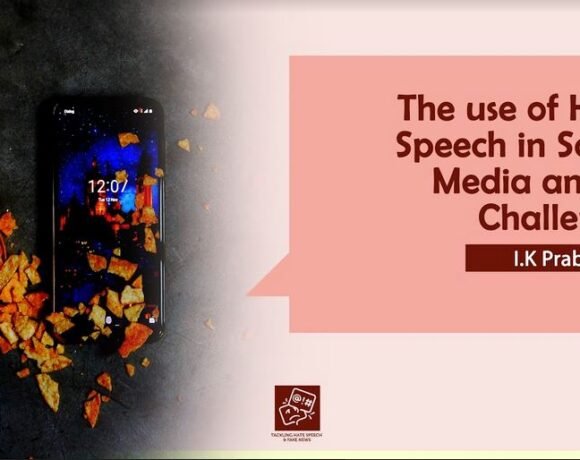The Role of Women in Building an Inclusive Sri Lanka
By Praneeth Asanka
Introduction
In a society that prides itself on diversity, the role of women in promoting social cohesion and peace is both crucial and frequently underrepresented. For Sri Lanka to progress toward a more inclusive society, recognizing and empowering the contributions of women across different sectors is essential. This article explores how women in Sri Lanka are helping build a more inclusive society, the obstacles they continue to face, and the role of gender-sensitive media in portraying women accurately and positively. Through the lens of education, economic growth, and peacebuilding, we can better understand the transformative role of women in creating an equitable society for all.
Women’s Role in Promoting Social Cohesion and Economic Development
Across Sri Lanka, women contribute significantly to the social and economic landscape, particularly in education, healthcare, and community development. In the field of education, Sri Lankan women are notable for their high literacy rates and substantial representation in higher education institutions. These achievements help reduce disparities in gender equality and set a strong foundation for future generations. Additionally, the presence of female educators and administrators in schools fosters inclusivity and creates an environment where girls are encouraged to pursue their academic and career ambitions.
Women’s contributions to the workforce are also essential in building a stable economy. Women in both urban and rural areas are involved in agriculture, trade, manufacturing, and entrepreneurship. For example, in tea plantation regions, women form a substantial part of the workforce and play a critical role in the country’s economic stability. While their contributions are visible, their economic empowerment remains a work in progress. More initiatives are required to ensure equal pay, fair working conditions, and access to resources that will allow women to achieve their potential as economic drivers.
Women’s involvement in politics and governance is becoming increasingly important in Sri Lanka. Although female representation remains relatively low, women leaders like former President Chandrika Kumaratunga highlight the positive impact of female political engagement. Women in leadership often focus on essential issues such as healthcare, education, and community development, helping to create more equitable policies that benefit society as a whole. By promoting gender equality in politics, Sri Lanka can ensure more diverse perspectives and a stronger foundation for inclusive decision-making.
Overcoming Barriers to Gender Equality
Despite their contributions, Sri Lankan women face major challenges like cultural stereotypes, gender-based violence, and limited leadership access, all of which hinder full participation in public life. Gender-based violence threatens women’s safety and autonomy, while social stigmas around domestic roles restrict their mobility and aspirations.
Gender pays disparity is another ongoing issue. Women often face lower wages compared to their male counterparts, even in similar roles, limiting their economic independence. Addressing these issues requires legal frameworks to enforce equal pay and protect against workplace discrimination. Additionally, fostering a cultural shift that recognizes women’s contributions beyond domestic responsibilities is necessary for creating a more inclusive society.
Despite changing attitudes, social stigmas around women in leadership persist, often challenging their authority based on outdated gender norms. Tackling these biases requires community and institutional efforts, with schools and workplaces promoting gender equality and educating youth on the importance of shared leadership across genders.
The Role of Media in Gender Sensitivity
Media significantly shapes public perceptions, making it essential for journalists to portray women accurately and beyond outdated stereotypes. Sri Lankan media often focuses on domestic roles or beauty standards, limiting how women are seen. These narrow portrayals overlook women as leaders and innovators, restricting society’s view of their true potential.
Gender-sensitive media representation can change this narrative. When women are portrayed as leaders, innovators, and change-makers, it inspires others to view women as integral to progress and societal cohesion. For example, covering the achievements of figures like Dr. Anula Wijesundara, a distinguished medical professional, and Vishaka Dharmadasa, a respected peacebuilder, demonstrates women’s impact on national progress. Highlighting women’s successes in traditionally male-dominated fields such as technology, politics, and science further reinforces the idea that women can and should have equal opportunities to lead.
Fact-based reporting that emphasizes women’s contributions within broader contexts—such as economic development and human rights—creates an informed and balanced perspective. Media can use tools like the Right to Information (RTI) Act to access accurate data and showcase women’s roles more authentically. Such reporting helps cultivate a culture of respect and appreciation for women’s contributions, promoting equality in both the public and private spheres.
Promoting Inclusivity Through Gender-Sensitive Media and Education
Gender-sensitive media not only challenges existing biases but also serves as a role model for future generations. When boys and men see women portrayed as equals, it fosters respect and encourages partnerships in both professional and personal settings. Young girls, meanwhile, are more likely to aspire to leadership roles if they see women represented positively and accurately. For Sri Lanka, where many regions are still recovering from past conflicts, the role of women in peacebuilding and community healing is particularly crucial. Women’s leadership and resilience in these areas serve as powerful examples for communities striving to move beyond historical divides.
Furthermore, educational initiatives that focus on gender sensitivity and inclusivity can have a lasting impact. Incorporating gender equality into school curricula and workplace training programs can create an environment where both boys and girls understand the importance of shared responsibility and equal opportunity. This early exposure is key to dismantling stereotypes and creating a generation that values diversity and inclusivity.
Conclusion
In building an inclusive Sri Lanka, recognizing, and empowering women’s contributions is essential. Women play a vital role in promoting social cohesion, economic stability, and peacebuilding, despite the numerous challenges they face. By encouraging gender-sensitive portrayals in media and supporting policies that promote equality in education, employment, and governance, Sri Lanka can make meaningful strides toward a fairer society. Highlighting women as leaders and changemakers across sectors will foster a stronger, more united nation that truly reflects the strength and diversity of its people.








